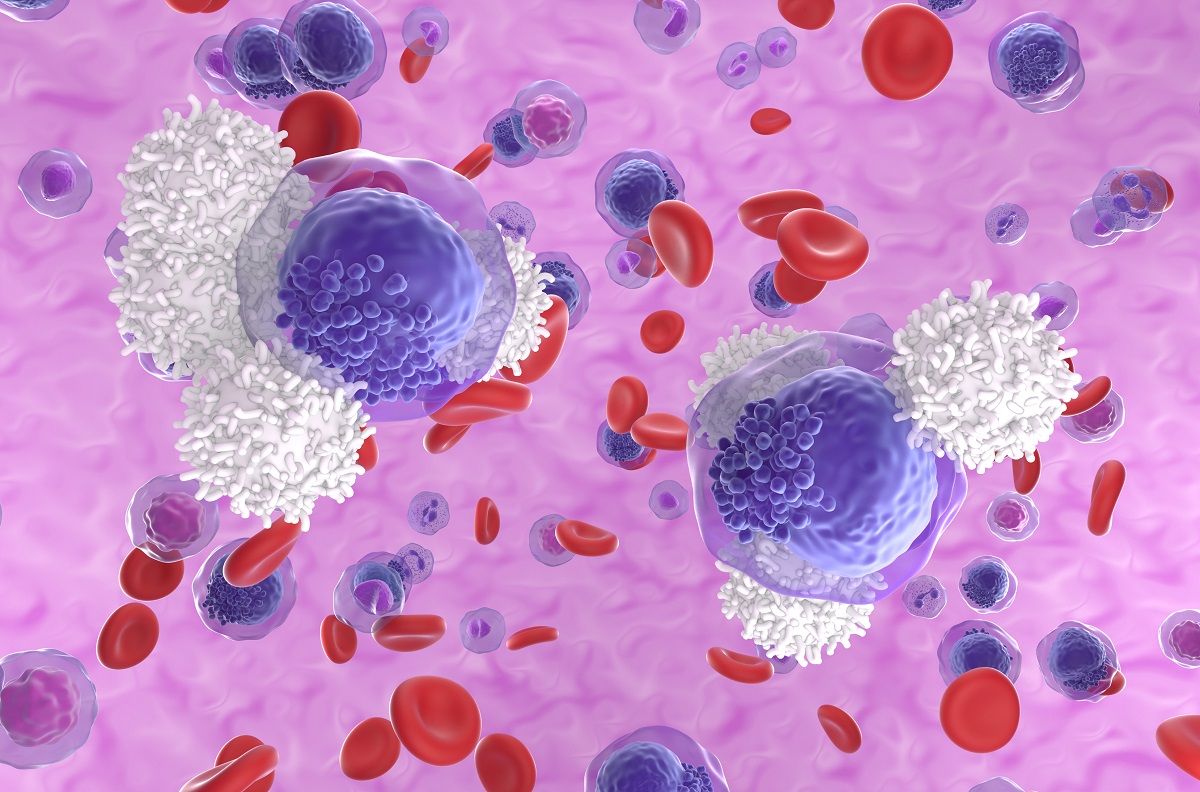KEY TAKEAWAYS
- The study aimed to evaluate BIF002’s efficacy in targeting and eradicating LSCs in AML.
- Researchers noticed that BIF002 effectively targets LSCs and extends survival in AML models, indicating its potential as a new AML treatment.
The interleukin-1 receptor accessory protein (IL1RAP) is highly expressed on acute myeloid leukemia (AML) bulk blasts and leukemic stem cells (LSCs), but not on normal hematopoietic stem cells (HSCs), providing an opportunity to target and eliminate the disease while sparing normal hematopoiesis.
Yi Zhang and the team aimed to evaluate the activity of BIF002, a novel anti-IL1RAP/CD3 T cell engager (TCE) designed to target and destroy AML cells.
They performed an inclusive analysis to isolate antibodies to IL1RAP from CD138+ B cells collected from immunized mice using optoelectric positioning and single-cell sequencing. Individual mouse monoclonal antibodies (mAbs) were produced and characterized, leading to the generation of BIF002, an anti-human IL1RAP/CD3 TCE utilizing Fab arm exchange.
Mutations in the human IgG1 Fc region were introduced to reduce FcγR binding. The anti-leukemic activity of BIF002 was evaluated in vitro and in vivo across multiple cell lines and patient-derived AML samples.
About IL1RAP, it was found to be highly expressed on most human AML cell lines and primary blasts, including CD34+ LSC-enriched subpopulations from patients with both de novo and relapsed/refractory (R/R) leukemia, but not on normal HSCs.
In co-cultures of T cells from healthy donors with IL1RAPhigh AML cell lines and primary blasts, BIF002 induced dose- and effector-to-target (E:T) ratio-dependent T cell activation and leukemic cell lysis at subnanomolar concentrations. BIF002 administered intravenously along with human T cells led to the depletion of leukemic cells and significantly prolonged the survival of IL1RAPhigh MOLM13 or AML patient-derived xenografts with no off-target side effects, compared to controls.
Notably, BIF002 effectively redirected T cells to eliminate LSCs, as evidenced by the absence of disease initiation in secondary recipients of bone marrow (BM) from BIF002+T cells-treated donors (median survival not reached; all survived > 200 days) compared with recipients of BM from vehicle- (median survival: 26 days; P = 0.0004) or isotype control antibody+T cells-treated donors (26 days; P = 0.0002).
The study concluded that the novel anti-IL1RAP/CD3 TCE, BIF002, effectively eradicates leukemic stem cells and significantly prolongs the survival of AML xenografts, positioning it as a promising new treatment for AML.
This study received partial support from National Cancer Institute grants: CA286160 (B.Z. and G.M.), CA258981 (G.M. and B.Z.), CA248475 (G.M. and B.Z.), the MPN Foundation (I.A.), the V Foundation (G.M.), the Robert & Lynda Altman Family Foundation Research Fund and the Natural Science Foundation of China (grant no. 82100159) (Y.Z.).
Source: https://pubmed.ncbi.nlm.nih.gov/39143574/
Zhang Y, Park M, Ghoda LY, et al. (2024). “IL1RAP-specific T cell engager depletes acute myeloid leukemia stem cells.” J Hematol Oncol. 2024 Aug 14;17(1):67. doi: 10.1186/s13045-024-01586-x. PMID: 39143574; PMCID: PMC11325815.



